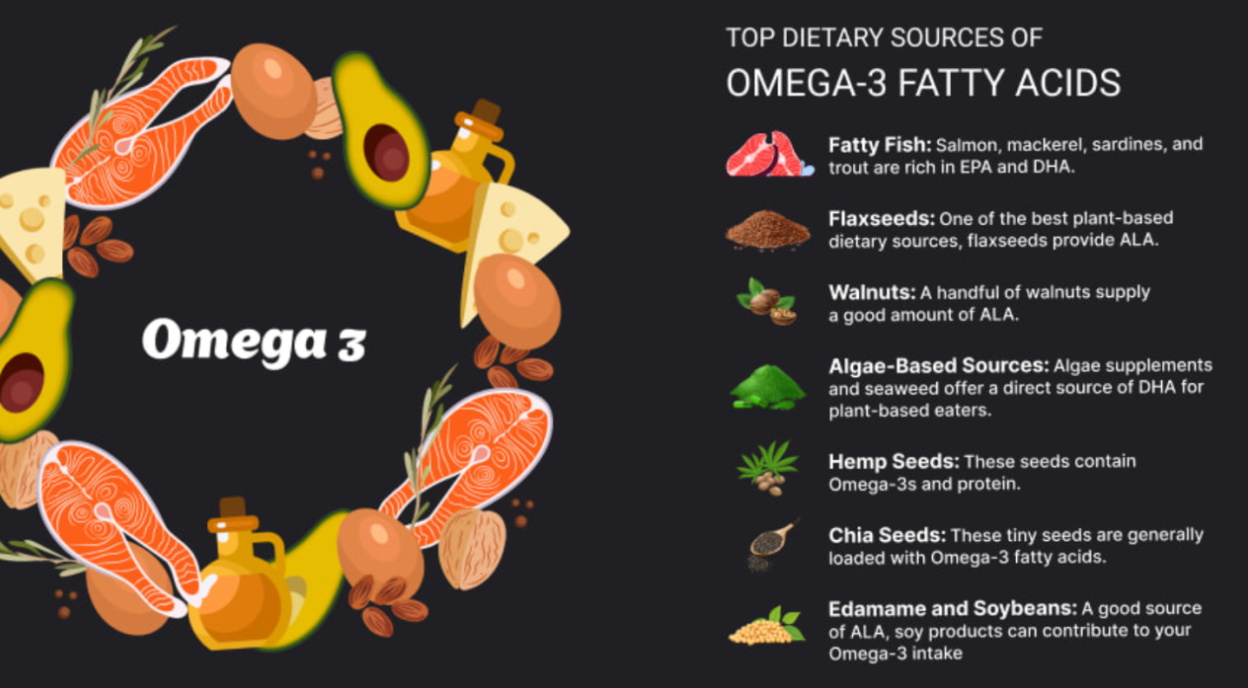Unlock the Power of Omega-3 to Calm Chronic Inflammation

Mark, a 42-year-old client of mine, struggled with persistent eczema, rashes, and random joint pain that no doctor could explain. After eliminating processed foods high in Omega-6 and introducing Omega-3-rich foods like wild-caught salmon, flaxseeds, and algae oil, his symptoms completely disappeared within months. His energy levels soared, and he no longer needed steroid creams for his skin. Omega-3 was not the only factor, but it played the most significant role in Mark's inflammatory healing process.
Chronic inflammation is one of the biggest drivers of autoimmune diseases, often triggered by environmental factors. Our immune system responds by releasing cytokines—molecules that heat up our body, leading to fatigue, joint pain, brain fog, and even fever. If you’ve ever experienced pain that moves around—your knee today, your wrist tomorrow—you might be dealing with systemic inflammation. The good news? You have the power to calm the fire within, and Omega-3 fatty acids are one of the most potent natural remedies.
Why Omega-3 is Essential
Omega-3 fatty acids are crucial for brain function, immune health, and cellular integrity.
Understanding ALA, EPA, and DHA
- ALA (Alpha-Linolenic Acid) – A plant-based Omega-3 found in flaxseeds, chia seeds, hemp seeds, and walnuts. The body can convert ALA into EPA and DHA, but this process is inefficient (only about 5-10% for EPA and 1-5% for DHA).
- EPA (Eicosapentaenoic Acid) – A long-chain Omega-3 primarily found in fatty fish and algae. EPA is well-known for its anti-inflammatory properties and its role in supporting heart health and reducing joint pain.
- DHA (Docosahexaenoic Acid) – Another long-chain Omega-3, DHA is essential for brain health, as it makes up a significant part of brain tissue and the retina. It is crucial for cognitive function, memory, and reducing neuroinflammation. It is a powerhouse for brain health, supporting memory.
Since the body converts ALA into EPA and DHA inefficiently, getting these directly from sources like fatty fish or algae is recommended for maximum benefit.
Best Sources of Omega-3:
- Flaxseeds, chia seeds, and hemp seeds – plant-based sources rich in ALA
- Fatty fish (salmon, sardines, mackerel) – excellent for EPA & DHA
- Algae-based Omega-3 – ideal for plant-based diets
The Best Way to Take Omega-3
For better absorption, opt for liquid Omega-3's over capsules and choose pure olive or coconut oil over processed seed oils. Or have algae powder, flax, hemp and chia seeds, easy to add in smoothies.
Incorporating Omega-3's into your diet can help reduce inflammation, lower blood pressure, and boost overall well-being. Are you getting enough?




